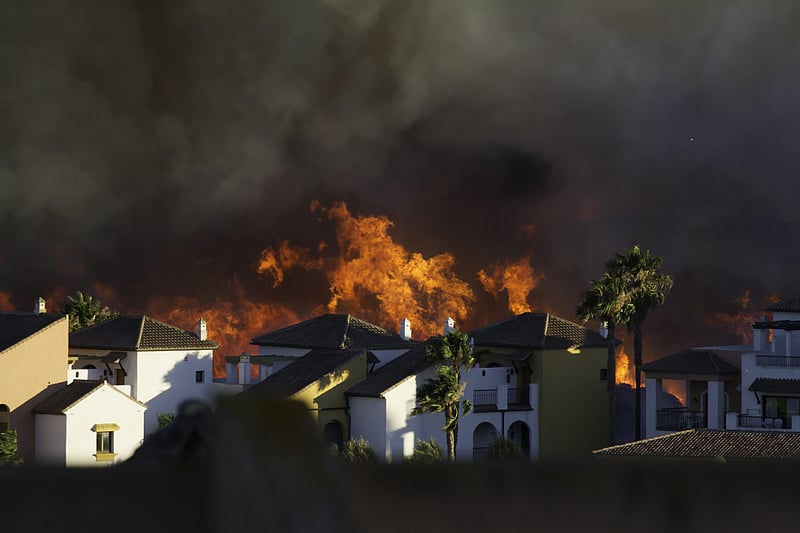Submit your contact info here or click the "Contact me about Sync" button below and we will reach out to you with more information.
Get Healthy!

- Cara Murez
- Posted February 13, 2023
Lessons From a Wildfire on How to Save Pets' Lives
In the wake of natural disasters like wildfires that have destroyed whole communities with alarming speed, some folks are focused on the beloved pets left behind -- and how to save others in the future.
More than 1,000 pets died in the Marshall fire on Dec. 30, 2021, in Boulder County, Colo., according to new research from the University of Colorado at Boulder.
The blaze touched off on a weekday when many people were at work and it spread rapidly, trapping pets in their homes.
"My main takeaway is that to save our pets, we need to know our neighbors,"said study co-author Leslie Irvine, a sociology professor and author of the book, Filling the Ark: Animal Welfare in Disasters.
"As tragic as [Hurricane] Katrina was, there was warning,"she said in a university news release. With the Marshall fire, "people woke up on a windy morning, and six hours later two communities had burned to the ground."
To investigate the impact, Irvine scoured traditional and social media accounts, public emergency information documents and posts from the Marshall Fire Lost and Found Pets group on Facebook.
She interviewed people who lost their pets, as well as animal shelter staffers.
One woman told Irvine she visited her lost home for days searching for her cat and three dogs.
"Despite losing everything,"she told Irvine, "it's the pets we grieve."
A man told her that a routine 15-minute drive from his workplace to his home stretched into two hours. By the time he got there to save his cat, he couldn't get to his house.
A Chicago family staying in a vacation rental said they didn't get an emergency notification after they briefly left the house. Their two Labrador retrievers, Reggie and Packer, died in the fire.
The number of pets who died when the 1,048 homes were destroyed is unclear, because of limited pet licensing requirements.
Based on data from the American Veterinary Medical Association and other sources, researchers estimated that about 1,182 animals were affected by the fire, most of them killed.
"It appears that the majority of animals were not rescued,"the study concluded.
David Crawford was able to save his two cats. He also rescued a neighbor's German Shepherd after contacting the owner on Facebook and, with another neighbor's help, kicking down the door.
"In one square block that I drove around, there was a cockatiel, a tortoise, a turtle, three cats and two dogs,"Crawford said, adding that had he known how to get in, he could have done more. "I had time. I could have conceivably saved all those animals."
Crawford has founded the nonprofit Animal Help Now.
Irvine is helping him design a help and rescue app that would quickly connect pet owners with others who could enter their homes to rescue their pets.
"When disaster strikes and you are away and can't get home, you can, with the press of a button, alert people that your animal needs [to be] rescued,"Crawford said.
Irvine's research took her to New Orleans in 2005 just after Hurricane Katrina, when 200,000 pets were stranded.
Progress has been made since earlier disasters, she said.
Shelters are more likely to take pets in a disaster. Federal legislation requires state and local emergency response plans to include pets.
Some suggestions to prepare for an emergency:
- Keep collars, leashes, carriers, medication and extra food in a designated place.
- Scan and upload veterinary records and pet registrations to the cloud.
- Stay up to date on vaccinations in case you need to stay at a shelter with your pet.
- Know which hotels are pet friendly.
- Take photos of you and your pet together to help verify ownership in case they go missing.
- Microchip your pet.
- Let trusted neighbors know how to access your house and pet supplies.
The study findings were recently published online in the journal Animals.
More information
For help with wildlife emergency or conflict, enter the address at Animal Help Now.
SOURCE: University of Colorado at Boulder, news release, Feb. 9, 2023







